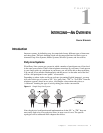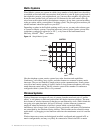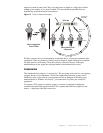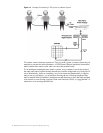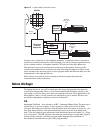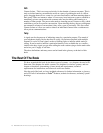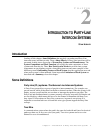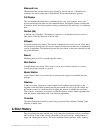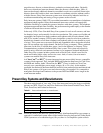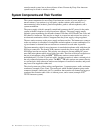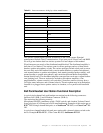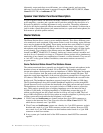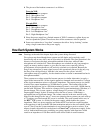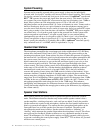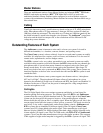
8 Handbook of Intercom Systems Engineering
Balanced Line
The balanced line concept reduces noise pickup by outside sources. A balanced two
conductor line carries audio that is differentially driven and balanced to ground.
Full Duplex
This is communication that allows simultaneous two-way conversations, that is, one
person can interrupt the other. In data communications, full duplex permits confirmation
of sent data by the receiving terminal echoing, sending back the same data, or confirming
data.
Decibel (dB)
A derived unit of loudness. The human ear perceives a 10 decibel increase as twice as
loud, and a 10 decibel decrease as half as loud.
Beltpack
A portable headset user station. This station is designed to be worn on a user’s belt, but is
also fastened to the underside of consoles, taped to a structure near the user, or mounted on
a piece of equipment. The headset plugs into the user station, as does the connection to the
rest of the intercom.
Biscuit
Marketing buzz word for a portable speaker station.
Main Station
A multichannel user station. There may be one or more of these stations in a system.
Usually the primary station in a system.
Master Station
A user station where a user station and a system power supply are combined into one
package
Sidetone
In the truest sense, sidetone is a small amount of microphone signal fed back to the
earphone of the individual speaking into the microphone. In a two type user station, the
null balance control is sometimes used to adjust the amount of sidetone the user hears.
This control is sometimes (erroneously) called the sidetone control. Other equipment has
both null balance adjustments and a true sidetone adjustment.
Crosstalk
Unwanted interference caused by audio energy from one line coupling (“leaking”) into
adjacent or nearby lines.
A Short History
Party-Line intercoms were needed early on by television production crews to coordinate
their activities. Some of the activities included on-site sport pickups, entertainment on
stage, and videotaping of shows. The crews included camera operators, audio, lighting,




